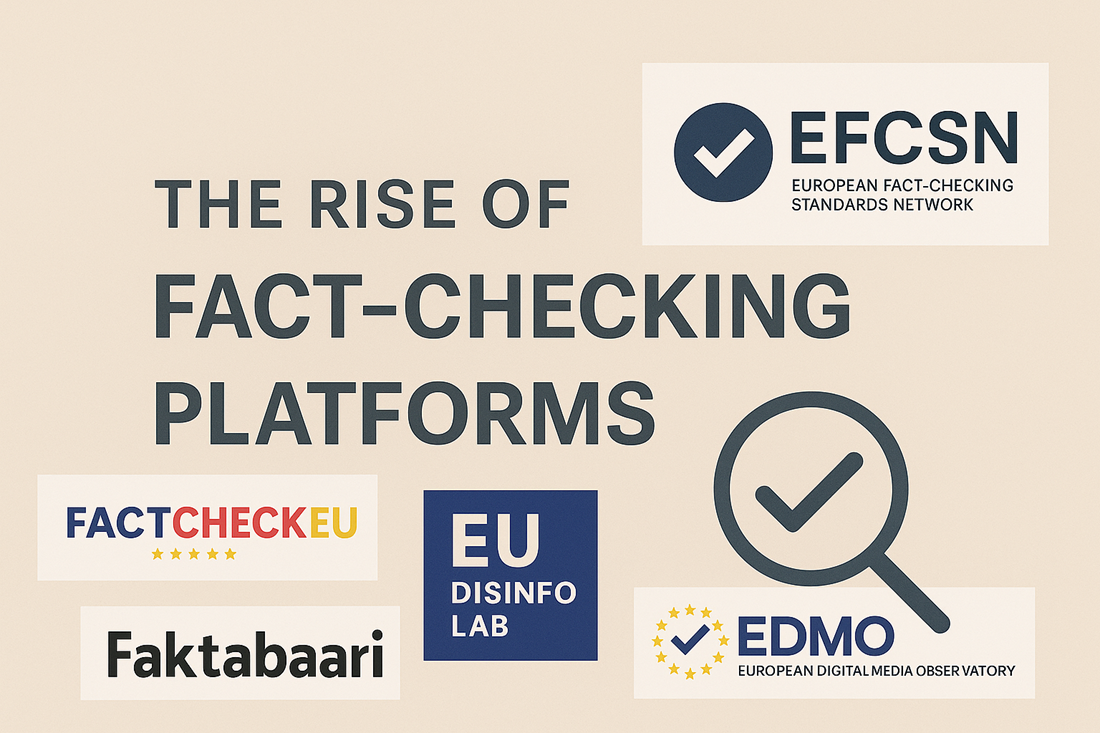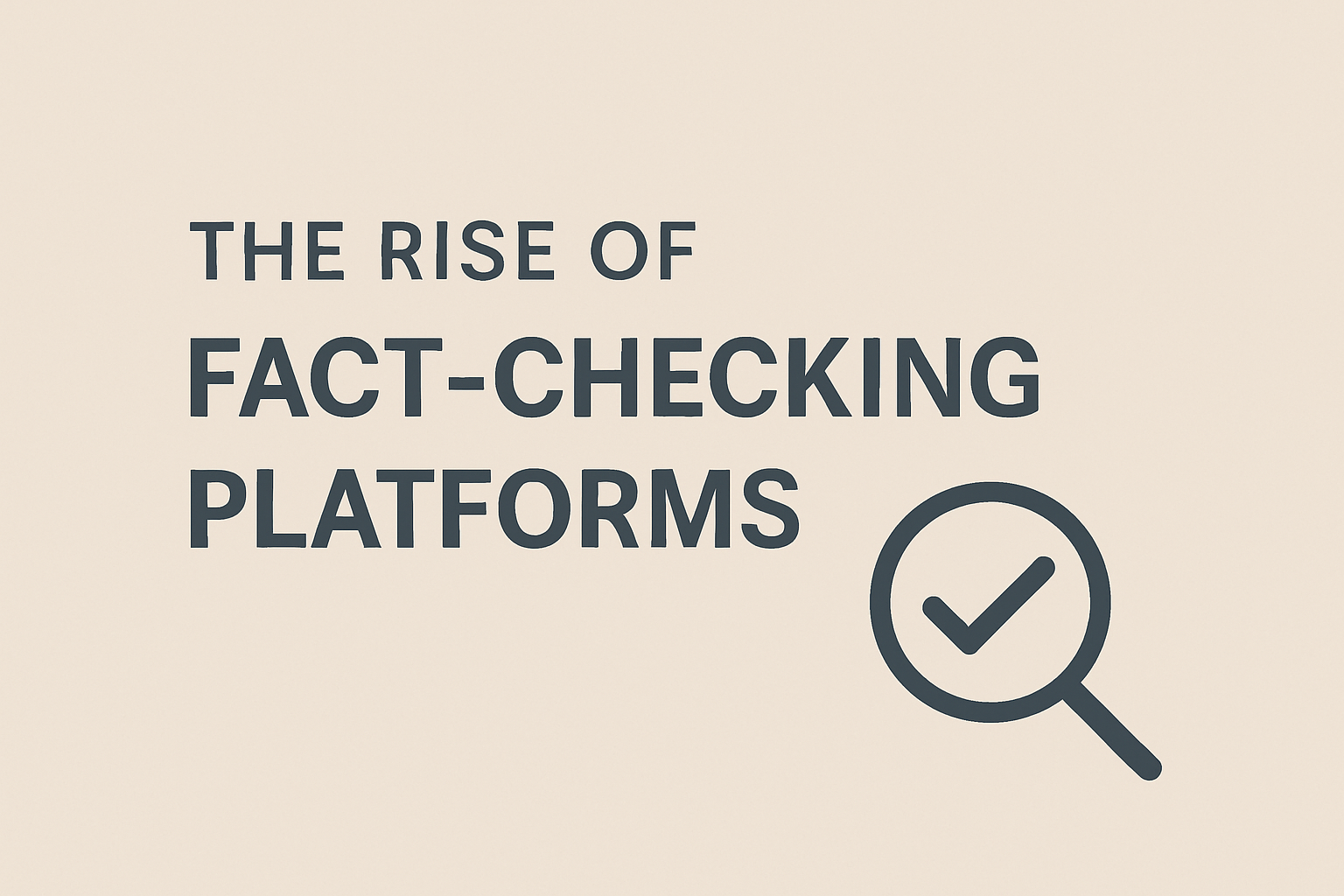Disinformation campaigns, AI-generated deep fakes (especially images and videos) and polarized political climate have made a ground for independent verification platforms, collaborative media networks, and tech-driven solutions to be expanded rapidly. The year of 2024 saw major elections across Europe, including the EU Parliament elections, national votes in Austria, Belgium, Lithuania and Finland, and regional ballots with high stakes. And, of course, the media consumers all over Europe read a lot of false claims about migration, climate policies, and security threats flooded social media like Facebook, TikTok and Instagram. Fact-checkers from reputable media like AFP Factuel (France), CORRECTIV (Germany), Pagella Politica (Italy), Delfi (Latvia) and Demagog (Poland) did real-time debunking.
Today the continent’s media ecosystem has transformed to support fact-checkers all over Europe. With umbrella organizations like the European Fact-Checking Standards Network (EFCSN) and initiatives backed by the International Fact-Checking Network (IFCN) the transformation continues. As a journalist joining the PulseZ team and an assessor for both the IFCN and EFCSN, I’ve had a front-row seat to the current evolution, observing how fact-checking platforms have grown in scope, influence, and necessity.
The roots of this rise trace back to earlier efforts that started even a decade ago, but 2024 marked a turning point. The European Parliament elections in 2024, the U.S. presidential elections were high-stakes events, and they catalyzed a wave of disinformation: manipulated or fake polls, staged campaign videos, and foreign interference narratives flooded social media. The European Digital Media Observatory (EDMO) reported a noticeable increase in debunked claims that spring. The EFCSN launched Elections24Check, a coalition of over 40 fact-checking outfits. This initiative didn’t just counter lies, but more importantly, it built a real-time database of election-related hoaxes, a resource still very useful today.

Picture: generated by AI (ChatGPT)
Recently again some discussions were on how platforms like Meta and Google are supporting third-party fact-checking initiatives to keep their platforms fact-based. However, Meta’s January 2025 decision to end its U.S. program, with hints of a European retreat, underscored the urgency.
Earlier in February I watched a discussion on YouTube. Found a quote to use for the future: “Fact-checking isn’t about silencing opinions – it’s about ensuring people have accurate information to make informed decisions”. In the video discussion, Justin Arenstein, co-founder and CEO of Code For Africa (CfA), also breaks down why adding context to misinformation is not the same as censorship.
The recent increase in funding fueled the boom of the rise of fact-checking initiatives. The European Commission’s 2023 call for proposals, offering €850,000 to boost crisis-response fact-checking, saw applications from all over Europe, and several new projects launched in 2024. Horizon Europe Digital and other programs poured millions into tools like AI-powered verification interfaces, empowering media outlets to detect manipulated content faster.

Picture: generated by AI (ChatGPT)
At PulseZ we are just starting. We are going to produce materials about disinformation and manipulated content that mostly target young Europeans. We’ve leveraged advanced technologies to monitor European-level disinformation and publish fact-checks about the topics concerning young audiences. We will also support media literacy through our courses available on the platform.
Several European institutions noted a public concern over online fakes. Young people are also facing those online. They are the active consumers of online platforms and social media.
Of course, challenges persist. And we are here to provide fact-based information to the younger generation about the EU, European institutions and our core values.
The rise isn’t just growth, but it’s a shift, a noticeable one. Fact-checking has moved from a niche to a cornerstone of Europe’s media, driven by elections, crises, and public demand. Young people are the ones who forced this change too. At PulseZ, we see a continent fighting for truth. Of course, with 65% of EU citizens facing fake news per month (EC, 2023), this battle’s far from over, but Europe’s fact-checkers are stronger than ever, and Pulse Z is joining the truth fighters in the continent’s media. In our upcoming articles we are going to present more fact-checks.
Written by
Shape the conversation
Do you have anything to add to this story? Any ideas for interviews or angles we should explore? Let us know if you’d like to write a follow-up, a counterpoint, or share a similar story.
